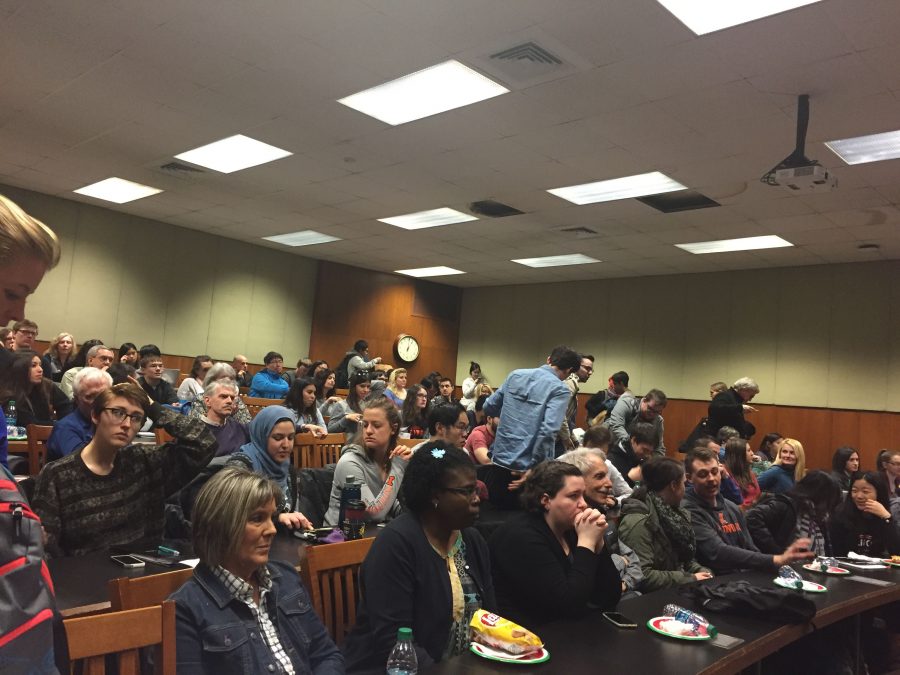College of Law panel explains impact of Trump immigration ban
Students and faculty gather Friday for the College of Law’s panel discussing President Donald Trump’s executive order limiting immigration from the Middle East.
Feb 6, 2017
The College of Law held a panel Friday about President Donald Trump’s executive order on immigration.
Trump signed the order on Jan. 27, banning entry into America from Iran, Iraq, Libya, Somalia, Sudan, Syria and Yemen for 90 days. The travel ban suspends refugee admission for 120 days and indefinitely denies entry for all Syrian refugees. The University is warning students and faculty to not travel outside of the U.S. for now.
College of Law Dean Vikram David Amar started the panel by saying it is important as law professors to examine the impacts of the order and help make sense of it to the campus community.
Hundreds attended the event Friday, so the panel split up into multiple overflow rooms to accommodate the crowd.
Amar said he hopes to plan more discussions throughout the semester, as there are new directions from President Trump’s administration. He said the executive order caught many people off guard, even though Trump said for the last year that he would institute a ban after taking office. As lawyers, Amar said, they need to make sure they are not just reacting but anticipating what is likely to happen next.
Get The Daily Illini in your inbox!
He said the order itself raised different legal questions for different classes of people, such as someone who has never been to U.S., someone approved for asylum and more.
There are 90,000 visa holders who have been impacted, Professor Lesley Wexler said. From green card holders and people with travel visas, 940 individuals have been unable to get on a plane, and 200 to 400 people have been denied entry once their plane landed.
The executive order prioritizes people from the seven countries who are being religiously persecuted for a minority religion. If someone is being persecuted, they will be moved to the top of the vetting list.
Right after Sept. 11, 2001, the U.S. briefly suspended refugee admissions and in 2011, Obama’s Department of State stopped processing Iraqi refugee requests for six months in response to a threat of terrorism. The most recent piece of legislation similar to the order is the Visa Waiver Improvement Act of 2015, Wexler said.
Details on the panel can be heard here starting at 40 minutes in.
@MeganAsh_Jones






